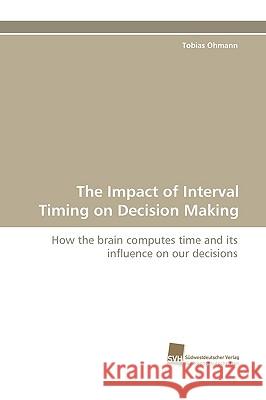The Impact of Interval Timing on Decision Making » książka
The Impact of Interval Timing on Decision Making
ISBN-13: 9783838116105 / Angielski / Miękka / 2010 / 168 str.
The cognitive process of timing intervals of different durations is a complex mechanism, which is permanently solved by various species. It is an underlying process of many cognitive functions, which are crucial for survival. The timing process, from sensory recognition to the point of making a decision whether or how to react, is closely interrelated with attentional and inhibitory functions. Many timing functions co-measure other crucial cognitive functions depending on the temporal domain they cover. For example, attention to time is also measured in different timing tasks, furthermore time reproduction relies on working memory function and the ability to delay a response. In this book I manly focused on time estimation and time reproduction tasks in the domain of seconds. All these cognitive functions are related to frontal brain regions. I demonstrate that the avian NCL is capable of all these functions just like the mammalian PFC. The main question of this thesis is: what exactly is the role of the underlying process - interval timing - on higher cognitive functions, how is it computed in the NCL and what is the role of dopamine and acetylcholine.











